Related Research Articles

William Carlos Williams was an American poet, writer, and physician closely associated with modernism and imagism.

Lola Ridge was an Irish-born New Zealand-American anarchist and modernist poet, and an influential editor of avant-garde, feminist, and Marxist publications. She is best known for her long poems and poetic sequences, published in numerous magazines and collected in five books of poetry.
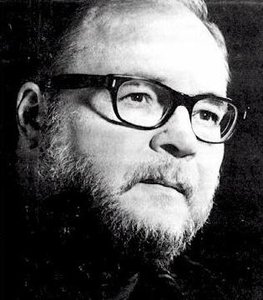
James Arlington Wright was an American poet.
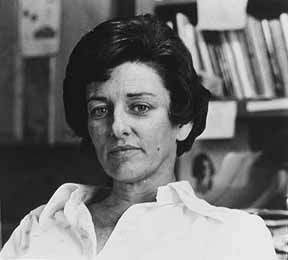
Anne Sexton was an American poet known for her highly personal, confessional verse. She won the Pulitzer Prize for poetry in 1967 for her book Live or Die. Her poetry details her long battle with bipolar disorder, suicidal tendencies, and intimate details from her private life, including relationships with her husband and children, whom it was later alleged she physically and sexually assaulted.
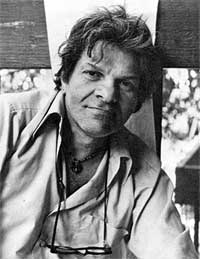
Gregory Nunzio Corso was an American poet and a key member of the Beat movement. He was one of the youngest of the inner circle of Beat Generation writers.

John Crowe Ransom was an American educator, scholar, literary critic, poet, essayist and editor. He is considered to be a founder of the New Criticism school of literary criticism. As a faculty member at Kenyon College, he was the first editor of the widely regarded Kenyon Review. Highly respected as a teacher and mentor to a generation of accomplished students, he also was a prize-winning poet and essayist. He was nominated for the 1973 Nobel Prize in Literature.

The 16th Street Baptist Church bombing was a terrorist bombing of the 16th Street Baptist Church in Birmingham, Alabama on September 15, 1963. The bombing was committed by a white supremacist terrorist group. Four members of a local Ku Klux Klan (KKK) chapter planted 19 sticks of dynamite attached to a timing device beneath the steps located on the east side of the church.
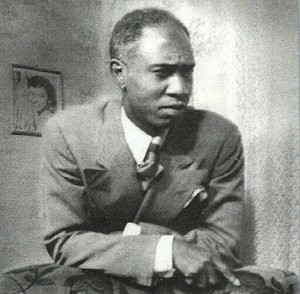
Melvin Beaunorus Tolson was an American poet, educator, columnist, and politician. As a poet, he was influenced both by Modernism and the language and experiences of African Americans, and he was deeply influenced by his study of the Harlem Renaissance.

Muriel Rukeyser was an American poet, essayist, biographer, and political activist. She wrote poems about equality, feminism, social justice, and Judaism. Kenneth Rexroth said that she was the greatest poet of her "exact generation".
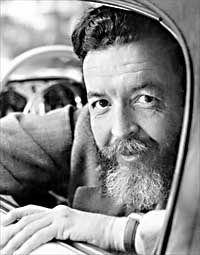
Randall Jarrelljə-REL was an American poet, literary critic, children's author, essayist, and novelist. He was the 11th Consultant in Poetry to the Library of Congress—a position that now bears the title Poet Laureate of the United States.

Kelly Ingram Park, formerly West Park, is a 4 acres (1.6 ha) park located in Birmingham, Alabama. It is bounded by 16th and 17th Streets and 5th and 6th Avenues North in the Birmingham Civil Rights District. The park, just outside the doors of the 16th Street Baptist Church, served as a central staging ground for large-scale demonstrations during the American Civil Rights Movement of the 1960s.
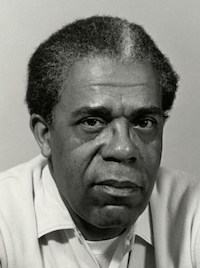
Dudley Randall was an African-American poet and poetry publisher from Detroit, Michigan. He founded a pioneering publishing company called Broadside Press in 1965, which published many leading African-American writers, among them Melvin Tolson, Sonia Sanchez, Audre Lorde, Gwendolyn Brooks, Etheridge Knight, Margaret Walker, and others.

Margaret Allison Bonds was an American composer, pianist, arranger, and teacher. One of the first Black composers and performers to gain recognition in the United States, she is best remembered today for her popular arrangements of African-American spirituals and frequent collaborations with Langston Hughes.

The Watsons Go to Birmingham – 1963 is a historical-fiction novel by Christopher Paul Curtis. First published in 1995 by Delacorte Press, it was reprinted in 1997. It tells the story of the Watsons, a lower middle class African-American family living in Flint, Michigan in the early 1960s from the perspective of Kenny Watson, the middle child of three. The first part of the novel focuses on Kenny's struggles to make friends as a smart and thoughtful ten-year-old, then shifts in setting when his parents decide to deliver their oldest son, Byron, to live with his grandmother in Birmingham, Alabama. The family embarks on a road trip to the Deep South, and while visiting Alabama, they get caught up in a tragic historical event of the Civil Rights Movement.
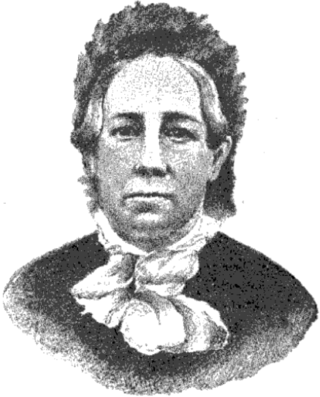
Eliza Agnew was an American Presbyterian missionary who taught for over forty years in Uduvil, Ceylon. She was known as the "Mother of a Thousand Daughters" for her many alumnae, and was the first unmarried American woman missionary in Ceylon.
Brigit Pegeen Kelly was an American poet and teacher. Born in Palo Alto, California, Kelly grew up in southern Indiana and lived much of her adult life in central Illinois. An intensely private woman, little is known about her life.
Aaron Kramer was an American poet, translator, and social activist. A lifelong poet of political commitment, he wrote 26 volumes of poetry, three of prose, and ten of translations between 1938 and 1998. Kramer taught English at Dowling College in Oakdale, Long Island, New York.

Margaret Danner (1915–1984) was an American poet, editor and cultural activist known for her poetic imagery and her celebration of African heritage and cultural forms.
"I, being born a woman and distressed" is a poem by American author Edna St. Vincent Millay. The poem appeared in Millay's 1923 collection The Harp-Weaver and Other Poems. The first-person speaker of the fourteen-line, Italian sonnet addresses a potential lover. She confesses to an intense physical attraction but denies the possibility of any emotional or intellectual connection.

Emma Elizabeth Brown, pen names B. E. E. and E. E. Brown, was an American author of prose, biographies, and poetry. She was also an artist.
References
- ↑ Randall, Dudley "Ballad of Birmingham", in Janet E. Gardner et al (eds), Literature: A Portable Anthology, 2nd edn, Boston: Bedford, 2009, pp. 588–589. ISBN 978-0-312-46186-7
- 1 2 "On 'Ballad of Birmingham'", Modern American Poetry Site, University of Illinois at Urbana-Champaign.
- ↑ "Jerry Moore – Life Is A Constant Journey Home" at Discogs.
- ↑ "The Ballad of Birmingham", Antiwar Songs.
- ↑ Dan Gutstein on Dudley Randall, Beltway: A Poetry Quarterly, Washingtonart.com.